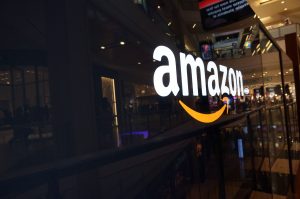
How Amazon Has Changed the Way We Shop
Ecommerce
Aug 10 2017

The retailing behemoth Amazon continues to dominate the world of online retail, and in doing so, it’s transformed the way we shop and buy. But the company’s recent moves signal that it has aspirations far beyond just online retailing. Consider the following:
– Amazon’s announced merger with Whole Foods Market Inc. for $13.7 billion in mid-June took the online world (and grocery industry) by surprise. If the deal goes through (amid speculation that a competing offer may surface), it will help to transform Amazon from a strictly online retailer to a full service grocer retailer in competition with other large supermarket companies. Amazon already has a $430 billion market capitalization, twice the value of Wal-Mart Stores.
– North American sales on Amazon.com have rocketed to $80 billion, from $16 billion in 2010. That amazing growth reflects the changes in how Americans are shopping.
– Amazon Prime subscriber numbers are up 38 percent higher than the previous year, and more than half of all U.S. households are Prime households.
– Amazon continues to expand its retail categories to new areas, including online groceries, fashion, and perhaps even pharmacy goods. Whatever it offers, we’re buying.
Amazon may have begun as a simple online bookstore, but over the past two decades it has revolutionized the way we shop — and not just the way we shop online. Here are five ways the online retailer has altered our shopping habits and processes:
- Digital One-Click Buying
Amazon has made shopping a much more seamless experience. Once purchasing information is in its system, customers can simply click and buy, with no slowdown effect of adding in billing and shipping addresses for every transaction. This convenience is helping Amazon expand its Prime subscriber base.
- Automated Communication
Amazon has made a name for itself through its marketing automation practices. Retailers all over the digital landscape have adopted the Amazon approach just to keep up. The company is responsible for developing and furthering automated order emails at each stage, including purchasing, delivery scheduling, and shipping. Amazon was also the first to offer product recommendations to customers based on previous purchases.
- Going Prime
Over half of all U.S. households now have memberships to Prime, Amazon’s loyalty/quick shipping program. In exchange for a $99 annual membership fee, customers reap Prime’s benefits of ultra-fast delivery options on eligible purchases, free music and video stream access, and online photo storage, as well as access to many other areas of the vast Amazon ecosystem.
- Relying on Robots
The technology behind Amazon’s success is a wonder to behold. Amazon uses over 45,000 robots in 20 different warehouse facilities to track inventory, pick and pack products, and provide better order accuracy faster than human workers. This increased automation on the warehouse side has given Amazon a leg up on competitors in fulfilling orders faster and more accurately.
- Dash-Click Buying
Amazon even helps us reorder household items at the click of a button. Its Amazon Dash buttons are Wi-Fi-connected devices that attach to appliances, cabinets, and walls around our homes. When a home is getting low on something like detergent or toilet paper, the customer simply presses the Dash button paired with the particular product and the system automatically sends an order to Amazon.
Big as it is now, Amazon is not about to coast on its past successes. The Whole Foods merger is just one example of the company’s larger goals. Amazon also recently opened a brick-and-mortar bookstore in New York City to sell books the old-fashioned way, but with the Amazon marketing automation touch. And its experiments with drone deliveries continue, although more public usage has been delayed until the FAA figures out how to regulate drone-flying craft in the U.S., which could take years. In the meantime, look to Amazon to broaden its retail categories to draw as many buyers as possible into its world.





